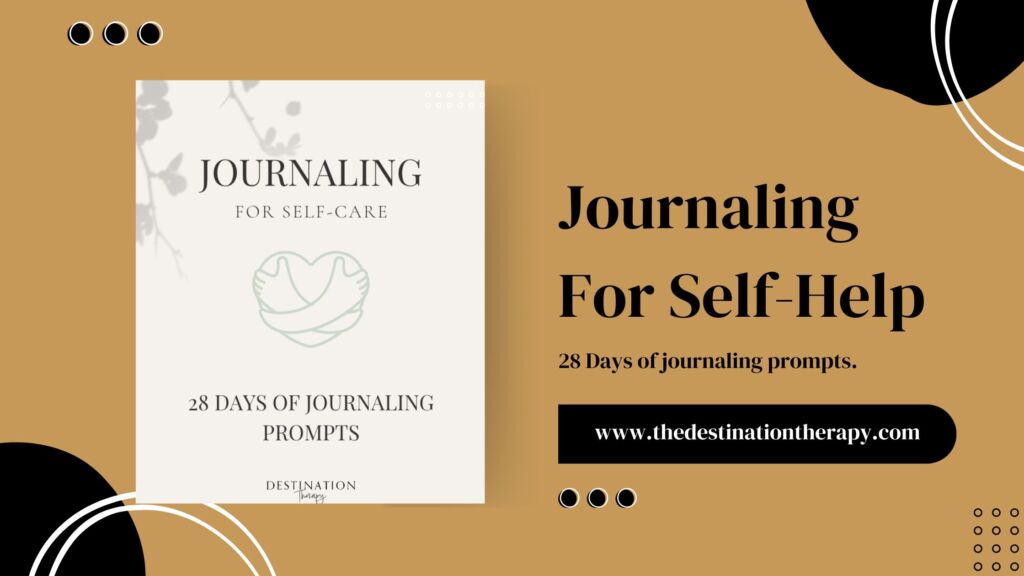Navigating the demands of executive leadership as a woman can be both rewarding and incredibly taxing. Between high-stakes decision-making, long hours, and the often-unspoken expectation to “do it all,” it’s no surprise that many women in leadership silently struggle with feelings of burnout, self-doubt, or even depression. But here’s the truth: prioritizing your mental health isn’t a sign of weakness; it’s a strategic move toward sustaining both your personal well-being and professional impact. Working with a therapist who specializes in depression and understands the unique challenges faced by women executives can be a powerful tool. These professionals don’t just offer a safe space to talk; they equip you with tailored strategies to manage stress, strengthen emotional resilience, and reconnect with your values and goals.
In this post, we’ll walk through seven key benefits of seeking this kind of specialized support. Whether you’re looking to show up more fully at work, feel more present in your personal life, or simply breathe a little easier, investing in your mental health can help you lead with clarity and confidence.
Table of Contents
Understanding Depression in Women Executives
Depression doesn’t discriminate, but when it shows up in the life of a woman executive, it can often manifest in many different ways. It can look like persistent exhaustion masked as drive, self-doubt disguised as perfectionism, or a growing sense of disconnection behind a polished, composed exterior. The truth is, balancing the intense demands of leadership with societal expectations and personal responsibilities can quickly chip away at your emotional well-being.
But the impact of depression doesn’t stop at the individual level; it can affect everything from decision-making and creativity to team dynamics and overall work atmosphere. Left unaddressed, it can lead to a cycle of burnout, isolation, and diminished confidence that touches every corner of life and work.
That’s why recognizing and addressing depression in women executives requires more than a one-size-fits-all approach. It calls for thoughtful, specialized care and someone who understands the many aspects of executive life and can offer practical, evidence-based strategies to support both your mental health and your leadership journey.
A therapist who works specifically with women executives brings not only clinical insight but also deep empathy for the challenges you face and the resilience you already carry.
The Role of a Specialized Therapist
When you’re in a leadership role, the pressure to perform and to appear as though you’re handling it all effortlessly can be overwhelming. That’s where a therapist who specializes in working with women executives facing depression comes in.
These therapists offer insight into the realities of corporate life and the often invisible expectations placed on women in leadership. That insight allows them to create highly personalized treatment plans that speak directly to your experiences, challenges, and goals.
What makes this kind of therapy so impactful is the relationship itself. In a confidential, judgment-free space, you’re invited to speak freely and to be real. That level of openness creates room for genuine healing, whether it’s uncovering the deeper roots of depression or learning new strategies for managing day-to-day stress.
Techniques like cognitive-behavioral therapy (CBT), mindfulness practices, and stress-reduction tools are all part of the process but what truly matters is how these tools are adapted to fit your life. Your schedule. Your leadership style. Your aspirations.
Ultimately, this kind of therapy isn’t just about treating depression; it’s about helping you reclaim clarity, confidence, and connection, both in and out of your work life.
7 Essential Benefits of a Therapist Specializing in Depression
Therapists specializing in depression for women executives understand the many aspects of maintaining your privacy in a professional world where mental health can still carry stigma. They become not just your support system, but your advocate and someone who helps you prioritize your well-being without jeopardizing your reputation or momentum.
Here are the seven benefits of seeking this kind of support:
Benefit 1: Tailored Therapeutic Approaches
One of the most impactful benefits of working with a therapist who specializes in depression for women executives is the ability to receive care that’s truly personalized.
Therapy in this context begins with a deep dive into both your mental health and the realities of your professional and personal world. What are the pressures you’re facing? How do work expectations spill into your home life? What internal narratives are you carrying about success, failure, or self-worth? These are just a few of the questions that help guide a tailored approach.
Using evidence-based techniques like Cognitive Behavioral Therapy (CBT) or Dialectical Behavior Therapy (DBT), your therapist can help you develop skills that speak directly to your experience. Maybe that looks like reframing perfectionism or finding new ways to manage high-stress decision-making without compromising your well-being. Maybe it’s learning to pause and breathe before burnout takes hold. When therapy is tailored to your unique challenges and goals, it becomes a roadmap toward deeper self-awareness and sustainable growth.
Benefit 2: Enhanced Emotional Resilience
Emotional resilience, the ability to adapt, recover, and stay grounded through life’s challenges, is a critical skill for women in leadership positions. When you’re balancing high-pressure decisions, demanding schedules, and the constant push to perform, that resilience can make the difference between feeling overwhelmed and staying centered.
Working with a therapist who specializes in depression for women executives can help strengthen this emotional foundation. Together, you’ll begin to recognize patterns in your emotional responses, identify triggers, and develop strategies to navigate stress more effectively.
Therapists often introduce tools like mindfulness, breathwork, or guided meditation to help you stay present and grounded, especially in the middle of a hectic workday. These techniques aren’t one-size-fits-all; they’re customized to what works for you, creating a toolkit you can actually rely on when things get tough.
Another essential part of building resilience is reshaping how you view yourself. Many high-achieving women carry internal narratives rooted in self-criticism or imposter syndrome. Therapy offers space to challenge those beliefs and cultivate a kinder, more empowered self-view; one that allows you to bounce back from setbacks with strength and self-compassion.
Benefit 3: Improved Work-Life Balance
For many women executives, the boundaries between work and life often feel blurred. The pressure to perform, lead, and care for others, both at work and at home, can make it feel nearly impossible to feel a true balance. But healthier, more sustainable boundaries are possible!
Working with a therapist who understands the many aspects of depression and the demands of leadership can help you uncover what’s really driving the imbalance. Maybe it’s perfectionism. Maybe it’s a tendency to overcommit or difficulty saying no. Whatever the root cause, a skilled therapist can help you untangle it.
Together, you’ll explore what matters most to you, your values, your non-negotiables, your long-term goals, and learn how to align your time and energy accordingly. This might mean setting firmer boundaries at work, learning how to delegate with confidence, or finally giving yourself permission to prioritize rest and joy without guilt.
The result? Less stress, more clarity, and a renewed sense of control. A stronger work-life balance doesn’t just support your mental health; it makes you a more present leader, partner, and individual. And that balance is the foundation for long-term success and well-being.
Benefit 4: Increased Productivity and Focus
Improving mental health often leads to noticeable gains in productivity and focus. When depression is being addressed correctly, it becomes easier to manage tasks, make decisions, and stay engaged at work. Therapists who specialize in working with women executives understand the challenges that come with high-pressure roles. They help you build practical strategies to stay organized, prioritize effectively, and manage time and energy in ways that support long-term success.
Therapy can also help reduce the mental distractions that often come with stress and burnout. Techniques like mindfulness and cognitive restructuring support your focus by encouraging present-moment awareness and healthier thought patterns. As emotional well-being improves, motivation and confidence often follow. With fewer internal barriers, you are able to better meet goals, solve problems, and lead effectively, benefiting both your individual performance and the broader workplace.
Benefit 5: Coping Strategies for Stress Management
Effective stress management is key to maintaining mental health, especially for women in leadership roles where pressure and responsibility are constant. Therapists who specialize in depression can help clients identify stressors and develop coping strategies that fit their specific needs and work environments. These tools are designed to prevent stress from building into something more serious, like burnout or depression, and are grounded in each client’s daily realities.
Stress management techniques may include breathing exercises, progressive muscle relaxation, and visualization to help regulate the body’s response to stress. Therapists also introduce cognitive strategies such as reframing unhelpful thoughts and building a habit of gratitude, which can improve emotional balance. In addition, many people benefit from strengthening their support networks. Therapists often encourage connection with trusted peers, friends, or family to provide both emotional and practical support. Together, these approaches help you manage stress in a sustainable way and protect your mental health over time.
Benefit 6: Building a Supportive Network
Feeling isolated is a common experience for many women in leadership roles. The pressures of executive responsibilities can make it difficult to find spaces where vulnerability feels safe. Therapy can help address this by guiding you toward building and maintaining a supportive network of relationships. A therapist can help you identify people, such as mentors, trusted colleagues, or close friends, who can offer emotional and practical support.
These connections serve multiple purposes: they create space to talk through challenges, receive honest feedback, and feel less alone in high-stress environments. Therapists may also encourage participation in professional groups like peer leadership circles or industry networks, which can offer additional perspective and shared experience. Building a reliable support system outside of therapy helps strengthen your resilience and provides an ongoing resource for both personal well-being and professional growth.
Benefit 7: Long-Term Mental Health Maintenance
Long-term mental health maintenance is crucial for sustained well-being and success. A therapist specializing in depression for women executives provides you with the tools and strategies needed to maintain your mental health over the long term. This involves not only addressing immediate symptoms but also building and fostering habits and practices that support ongoing mental well-being. This might look like regular exercise, balanced nutrition, adequate sleep, and mindfulness practices. By integrating these habits into your daily life, you can create a strong foundation for your mental health.
Regular therapy sessions also play a vital role in long-term mental health maintenance. These sessions provide a space for you to reflect on your experiences, address emerging challenges, and reinforce positive coping strategies. Therapists offer ongoing support and guidance, helping you navigate the ups and downs of your life while maintaining your mental well-being. By prioritizing long-term mental health maintenance, women executives can achieve lasting success and fulfillment in their personal and professional lives.
Taking the Next Step Towards Empowerment
Taking the next step towards empowerment involves recognizing the importance of mental health and seeking the support you need to thrive. For women in leadership positions, working with a therapist specializing in depression can be a transformative experience. By providing personalized therapeutic approaches, bettering emotional resilience, and offering strategies for stress management, these therapists empower you to navigate the challenges of executive life with confidence and clarity.
The benefits of specialized therapy go beyond individual well-being. By prioritizing mental health, women executives can improve their productivity, focus, and work-life balance, leading to greater professional success. Building a supportive network and maintaining long-term mental health are also crucial for sustained well-being and fulfillment.
Empowering your mind is not just an investment in yourself as a leader; it is a crucial step towards fostering an inclusive and thriving work environment. By taking the next step towards mental well-being, you can unlock your potential and achieve lasting success. Your journey towards empowerment begins with prioritizing your mental health, because your success starts with a healthy mind!
We Are Here For You
Whether you’re battling anxiety, depression, perfectionism, or navigating relationship challenges, Destination Therapy empowers you to achieve the peace, ease, and fulfillment you deserve.
We offer convenient telehealth across Texas, Massachusetts, California, Florida, Utah, and New York.




